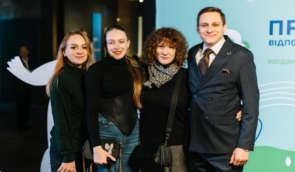Women in activism: emerging threats and how to combat them – summary of the ZMINA discussion at Docudays UA
On 12 June 2025, as part of the Rights Now! Human Rights Programme of the 22nd Docudays UA International Human Rights Documentary Film Festival, the Human Rights Centre ZMINA and the NGO Docudays UA organised an event “Coffee with Human Rights Defenders. The Right to Dignity: How to Protect Women’s Voices in a Changing World”.
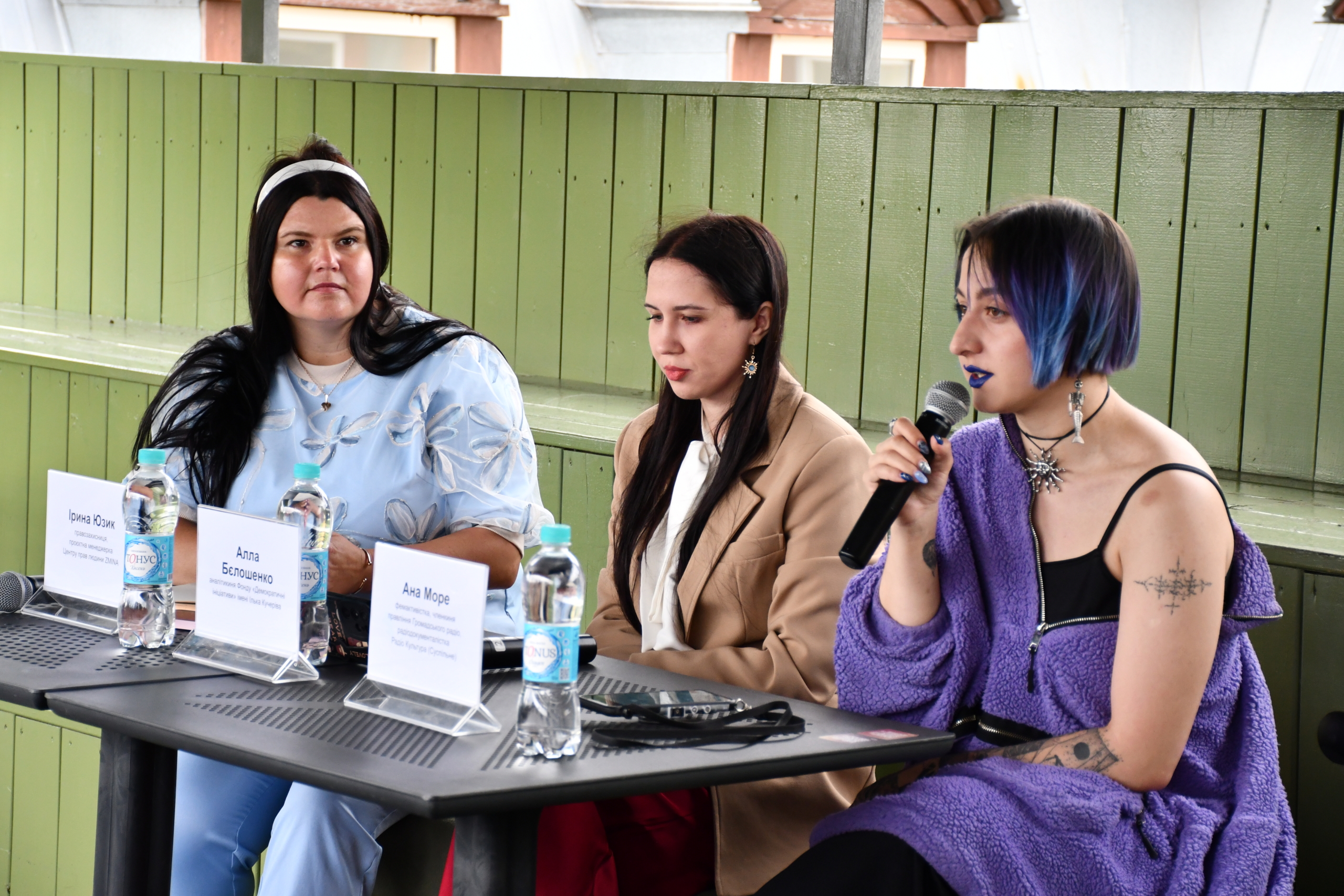 Iryna Yuzyk, Alla Bieloshenko, Ana More
Iryna Yuzyk, Alla Bieloshenko, Ana MoreThe event brought together women human rights defenders, researchers and media representatives to discuss threats to gender equality faced by women in the civil sector.
Participants of the discussion:
- Iryna Yuzyk, human rights defender, Project Manager of the Human Rights Centre ZMINA;
- Alla Bieloshenko, Analyst at the Ilko Kucheriv Democratic Initiatives Foundation;
- Oksana Potapova, intersectional feminist, researcher on peace and security issues (online).
The meeting was moderated by Ana More, feminist activist, member of the board of Hromadske Radio, and radio documentary producer at Radio Culture (Suspilne).
During the discussion, participants outlined the main barriers faced by women working in the civil sector: from online harassment to physical assaults and discrediting in the media.
According to sociological research presented by Alla Bieloshenko, over 80% of women activists face online threats, and over 75% face discrediting in professional and public environments.
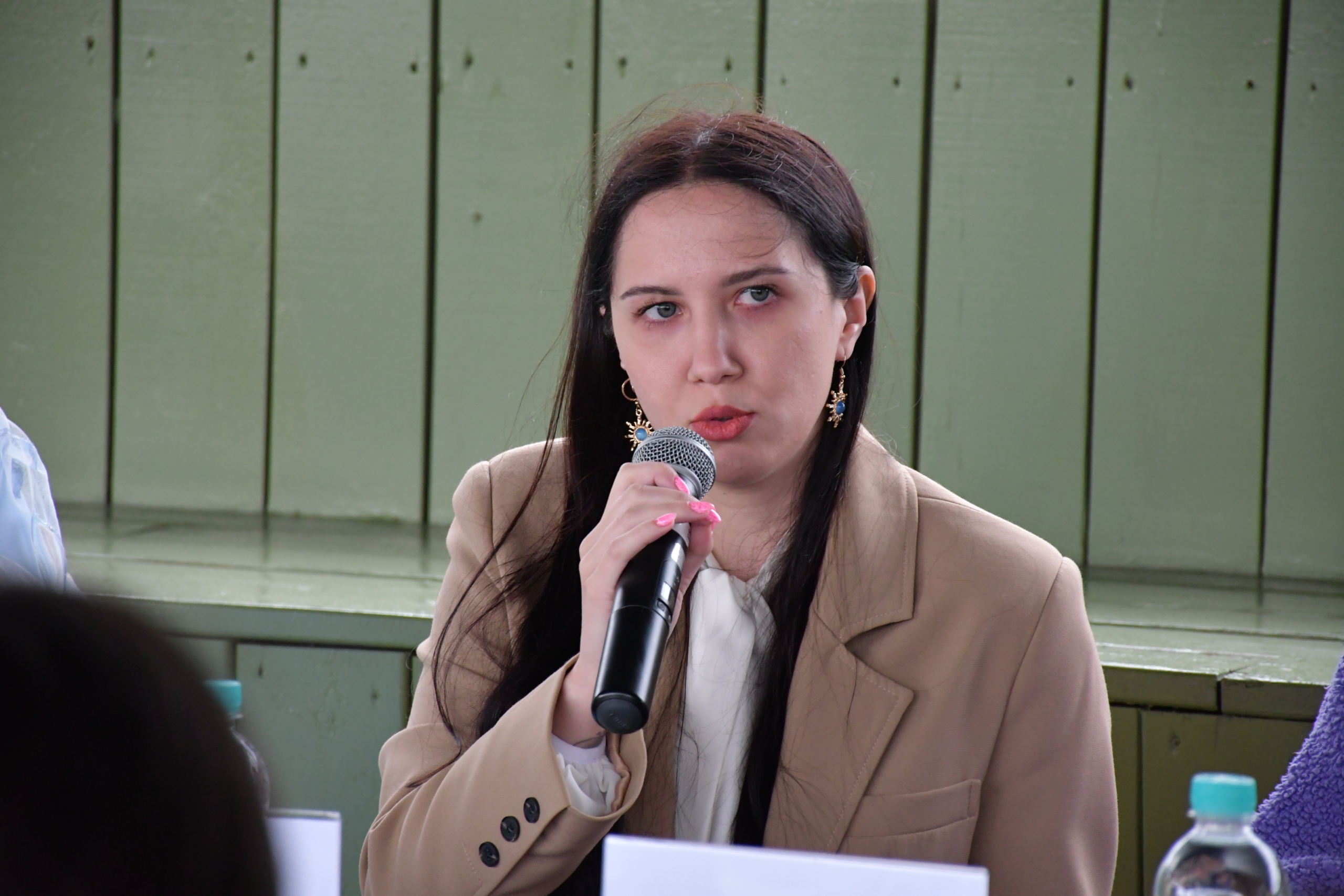 Alla Bieloshenko
Alla Bieloshenko“Persecution of women activists in Ukraine is the norm, rather than the exception: All respondents reported having experienced pressure at some point. The most common forms are online intimidation (80.3%), discrediting in the media and professional circles (75.4%), and gender discrimination (72.9%). It is particularly alarming to see that women from small communities report persecution most frequently. Where there is collusion between local authorities and law enforcement agencies, women activists are simply not protected,” Alla Bieloshenko stressed.
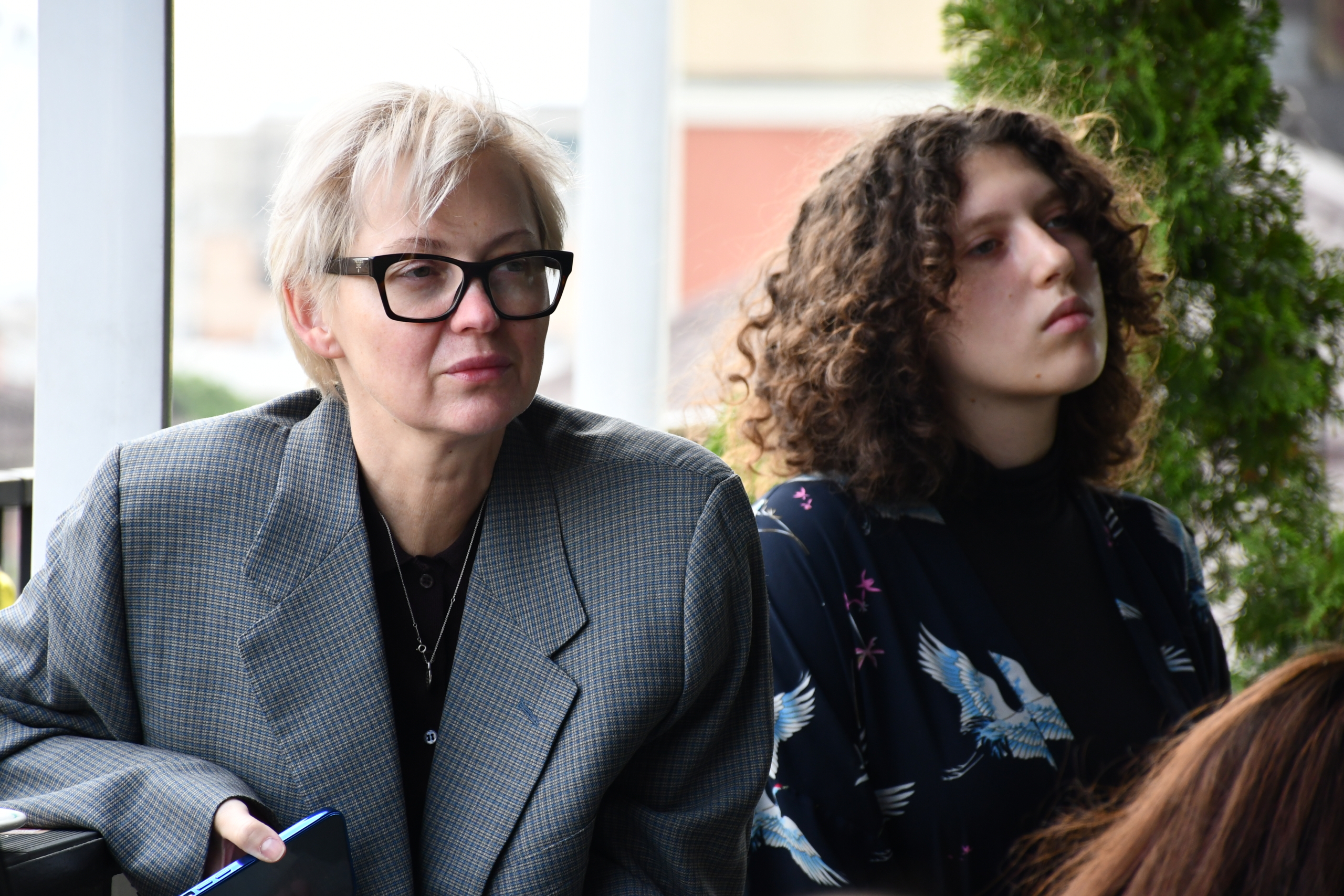
Iryna Yuzyk provided detailed information about the programmes of assistance and support for women activists offered by the Human Rights Centre ZMINA, particularly in the areas of digital security, advocacy and response to persecution. She emphasised the importance of solidarity and consistent documentation of the pressure experienced by women activists.
“We provide free legal assistance to women activists, media workers, volunteers – anyone who faces risks because of their civic activities. We offer psychological support and, if necessary, we provide a lawyer. And I sincerely rejoice to see among those present people who have already benefited from our assistance“.
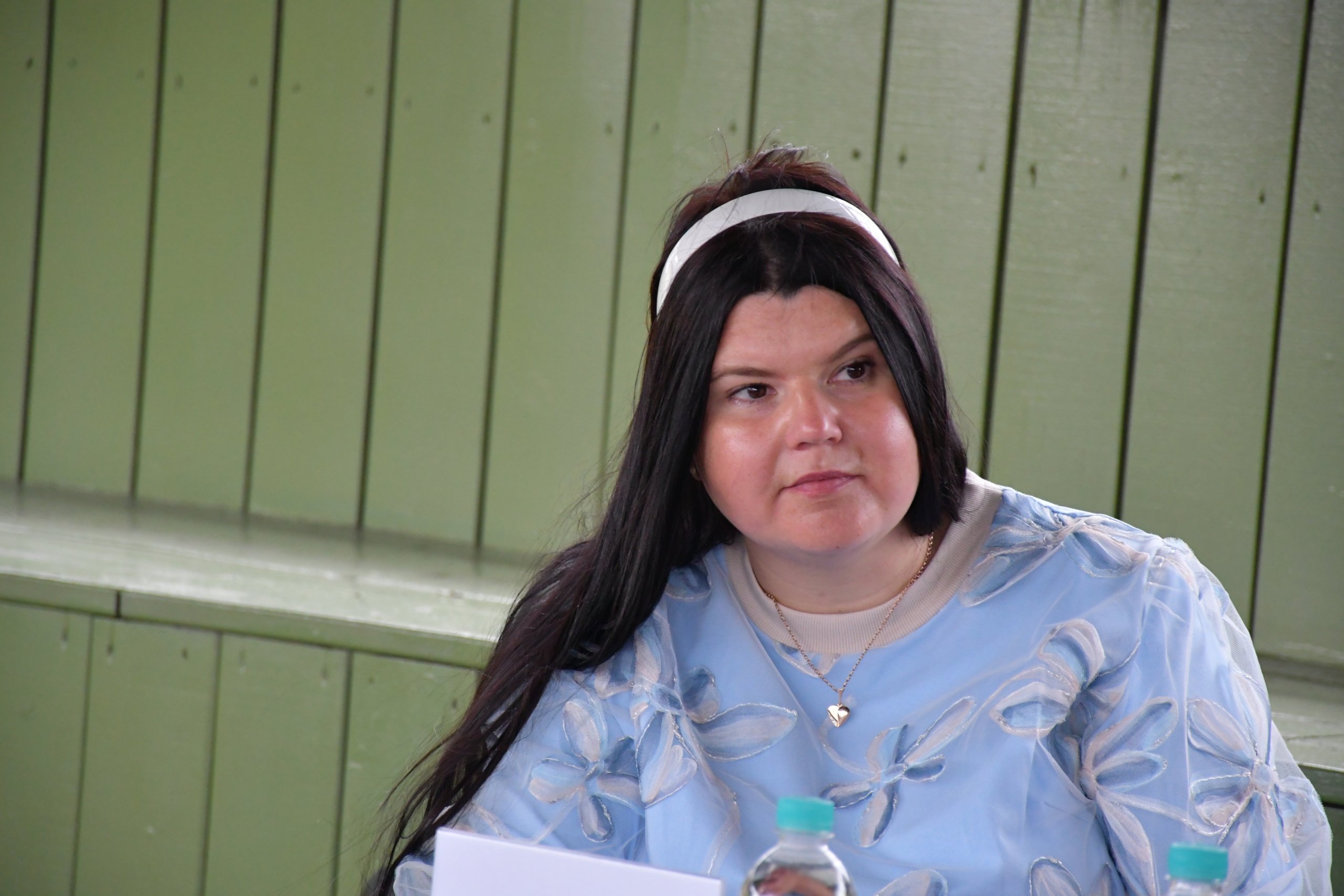 Iryna Yuzyk
Iryna YuzykOksana Potapova, who joined the event online, returned from the annual session of the UN Commission on the Status of Women (CSW) in New York and emphasised how the full-scale war in Ukraine has affected the feminist movement and activism not only in our country but also around the world: “We are witnessing a global rollback of support for women’s rights, from the United States to Tunisia. Authoritarian and conservative forces are coming to power through democratic means and using rhetoric that incites hatred towards migrants, LGBT+ people and feminists. That is why the feminist movement today is not only about women’s rights, but also about defending democracy“.
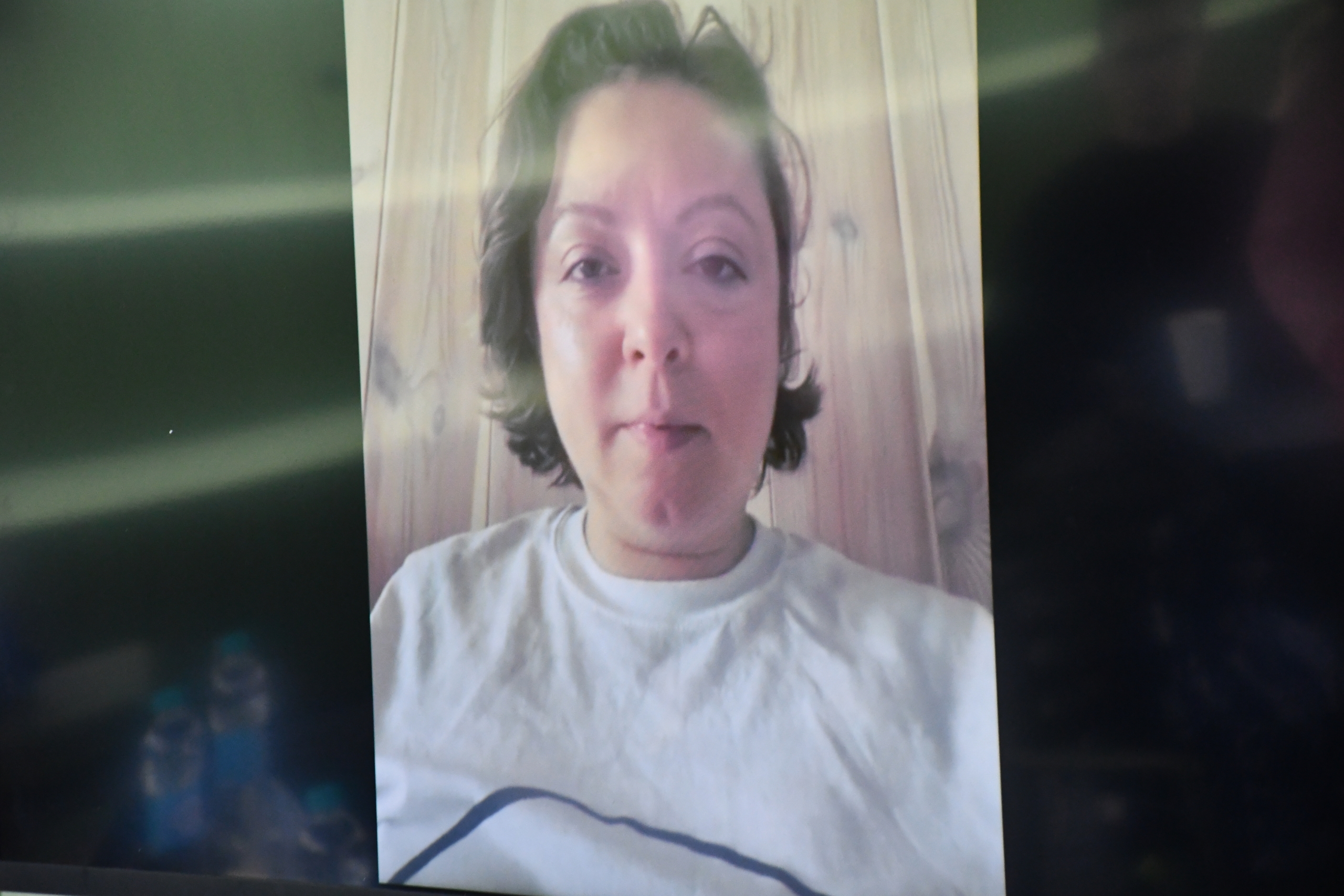 Oksana Potapova
Oksana PotapovaShe also emphasised the need for stable funding for feminist organisations: “It’s not just about money for projects. Resources are needed for psychological support, recovery, digital security — all of this is critically important if we are talking about long-term work“.
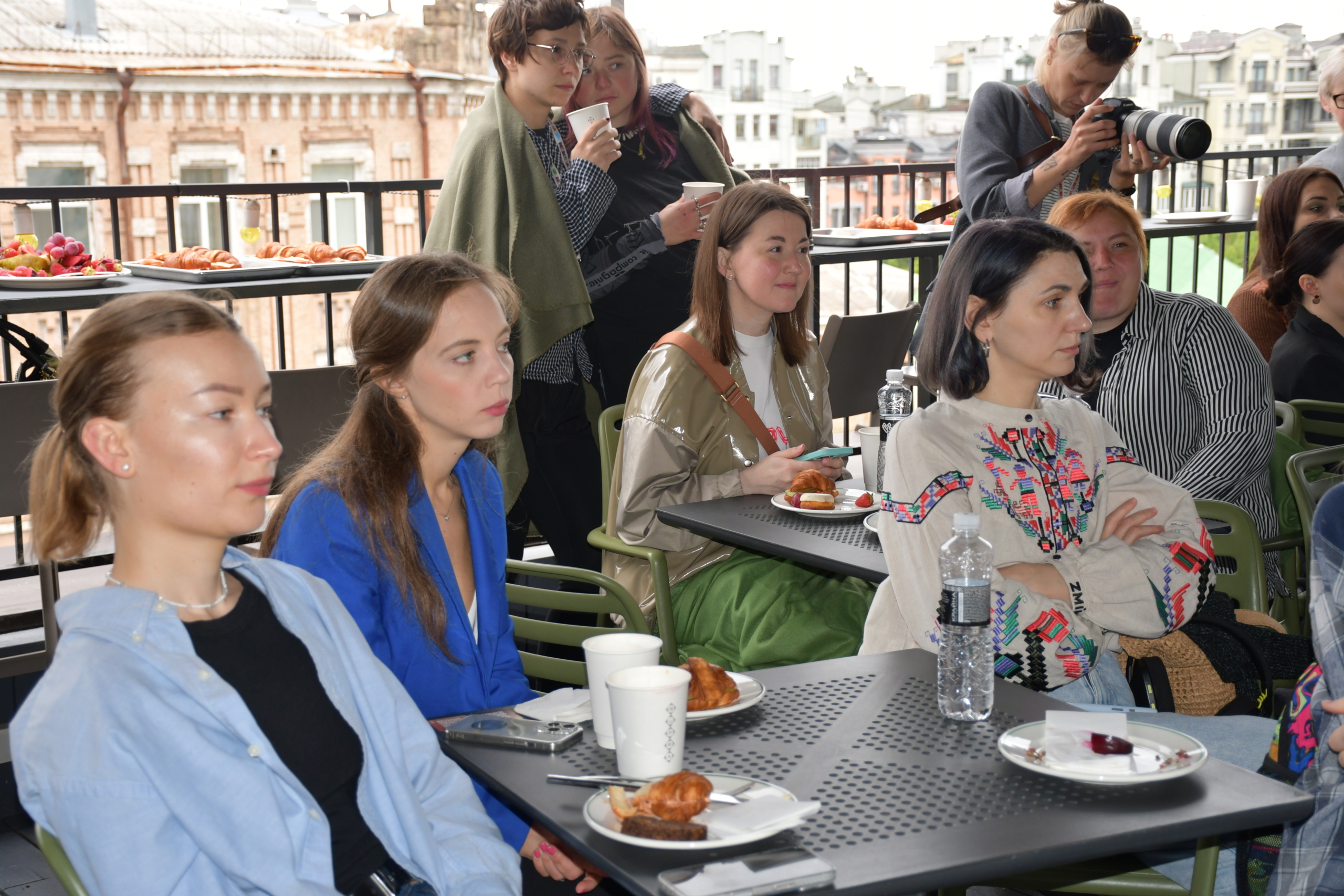
The event was organised by the Human Rights Centre ZMINA with technical support from UN Women Ukraine and funding from the UN Women’s Peace and Humanitarian Fund (WPHF), a flexible and responsive funding tool that supports high-quality activities to strengthen the capacity of local women in conflict prevention, crisis and emergency response, and in utilising key peacebuilding opportunities.
This event was organised with the financial support from the United Nations Women’s Peace and Humanitarian Fund (WPHF), however, the views and content expressed do not necessarily reflect the official position or endorsement of the United Nations.
The United Nations Women’s Peace and Humanitarian Fund (WPHF) is the only global mechanism created exclusively to support women’s participation in peacebuilding and security processes, as well as humanitarian assistance. Governed by a range of civil society, government and UN representatives, the WPHF is a multi-partner trust fund that mobilises urgently needed funding for local women-led organisations and works with women on the frontlines to build sustainable peace. Since 2016, the WPHF has provided funding and capacity support to over 1,000 local women’s civil society organisations working on the Women, Peace and Security agenda and implementing humanitarian activities in 41 crisis-affected countries around the world.
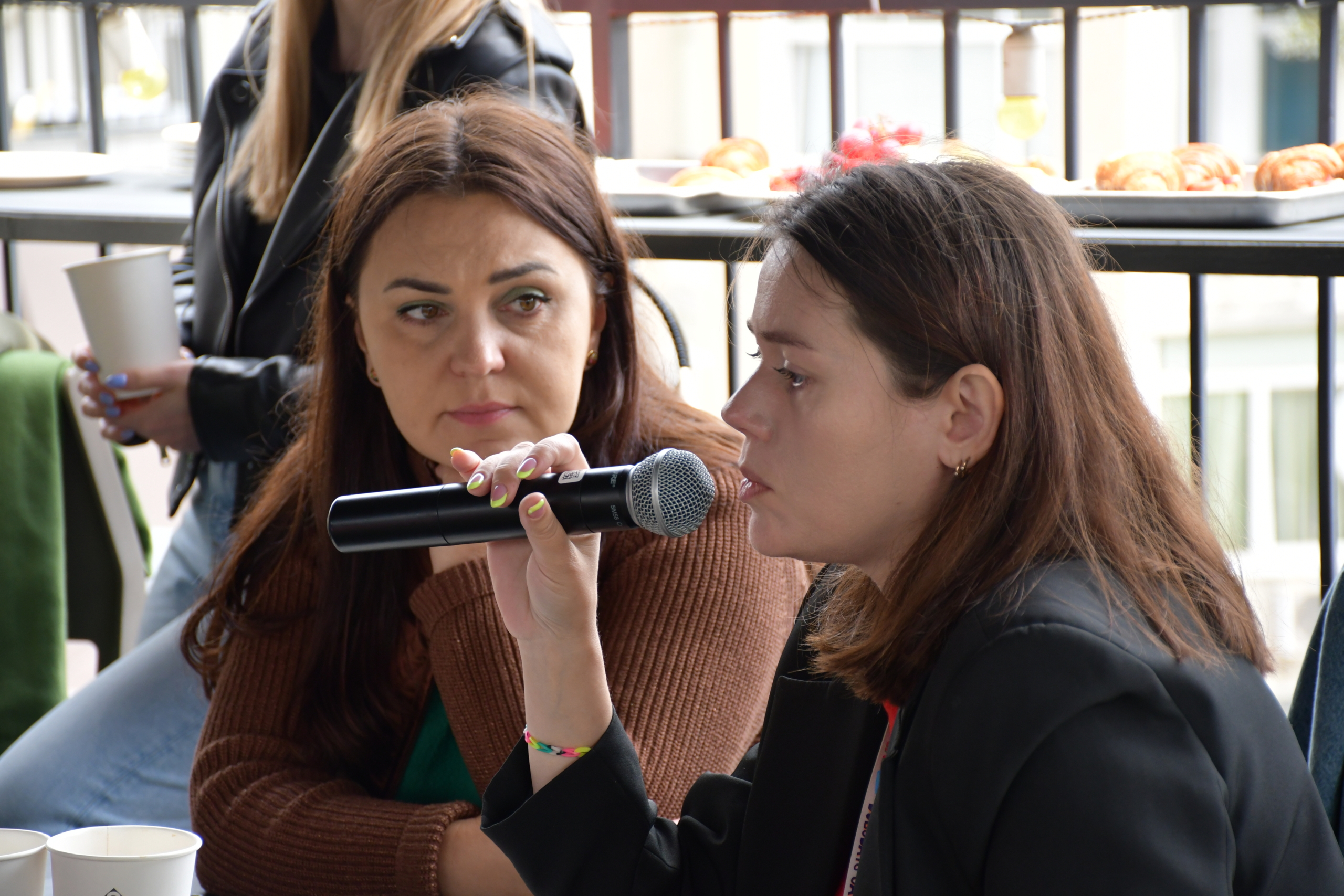
The presentation of the results of the joint sociological research conducted by the Human Rights Centre ZMINA and the Ilko Kucheriv Democratic Initiatives Foundation in late 2024 – early 2025 is available at this link.
If you have found a spelling error, please, notify us by selecting that text and pressing Ctrl+Enter.




